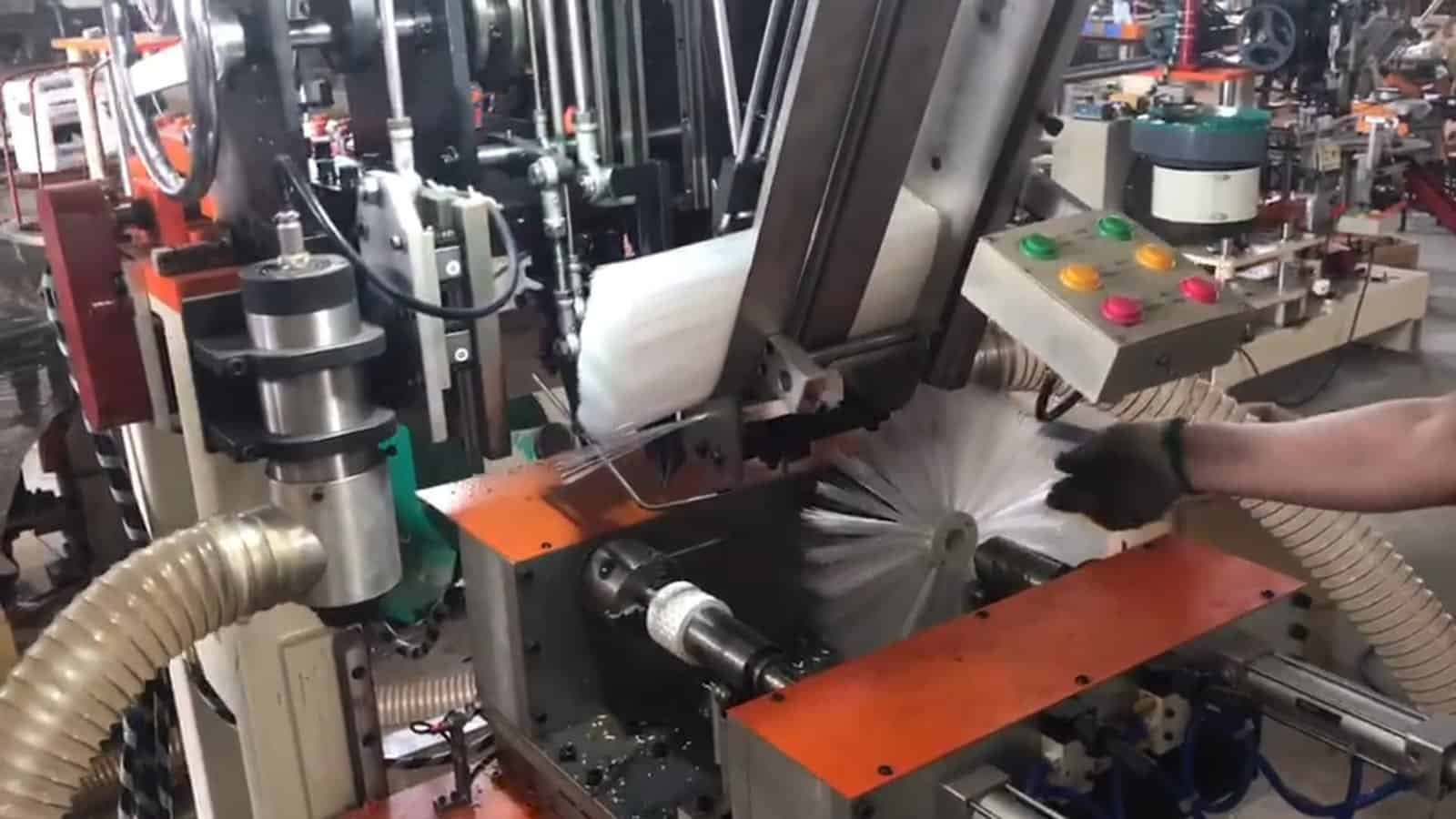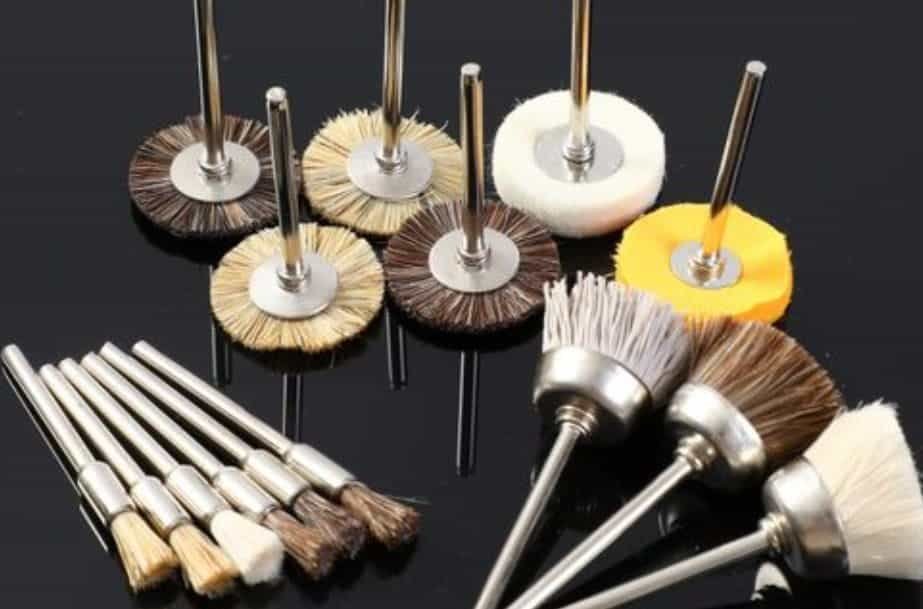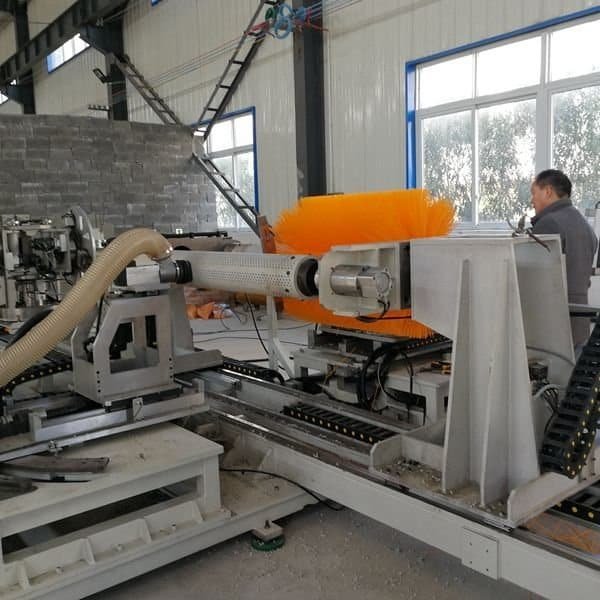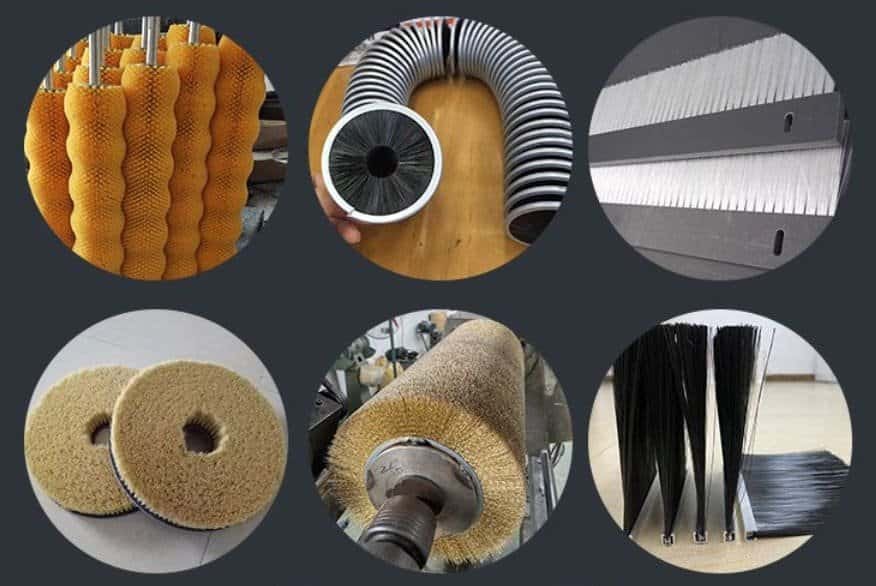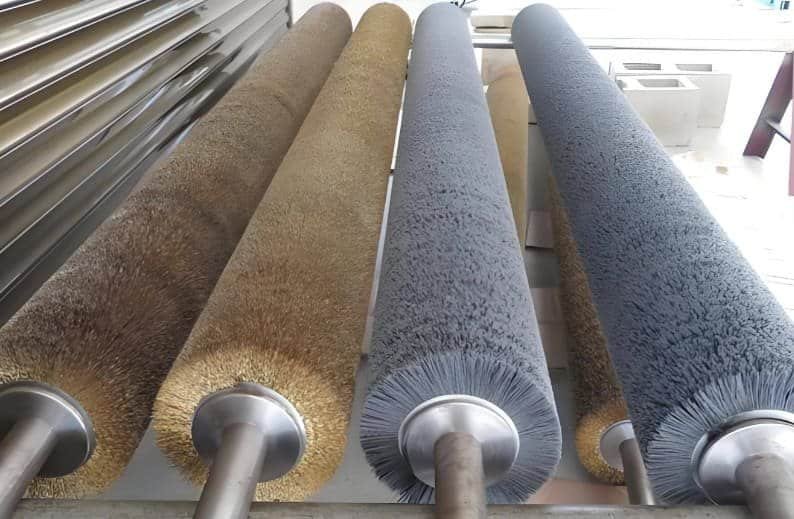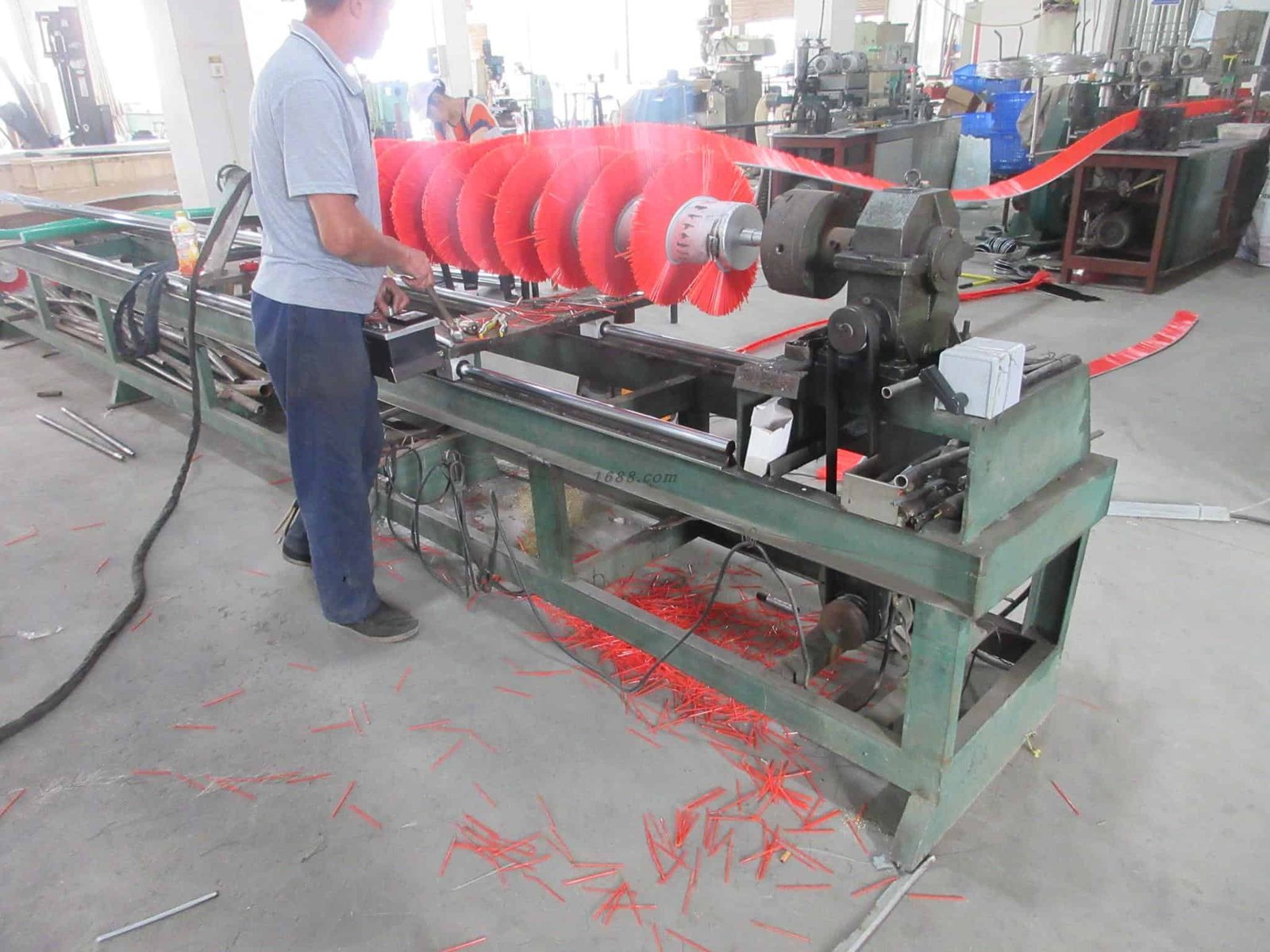When dust and grime build up, solar panels lose both efficiency and energy output. Automatic cleaning brushes provide a hands free & modern remedy that keeps performance high. In this blog post we look at how these systems work and why they increase energy production while lowering maintenance expenses.
What are Automatic Solar Panel Cleaning Brushes
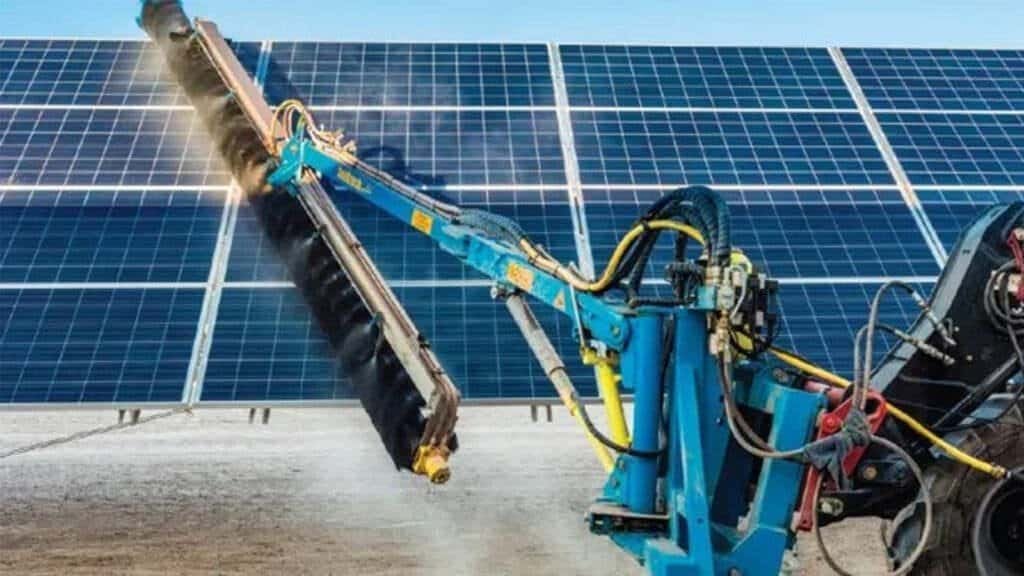
An automatic solar panel cleaning brush is an electrically powered maintenance device designed for solar systems. Its rotating bristles, spinning at up to 700 rpm, sweep away dirt, dust and bird droppings. And because it has soft bristles, they clean without scratching the glass surface. Most variants also carry rechargeable batteries. This let the brush operate autonomously.
Engineering Behind the Brushes
1. Sensor and Smart Navigation
Cameras, lasers as well as edge detectors give the brush spatial awareness. This helps them map the panel and steer clear of obstacles. Certain sensors start the cleaning cycle only when necessary by tracking dust levels. This saves both water and energy.
2. Scrubbing, Sweeping and more
As the cleaning unit crosses the panel, it usually rolls or spins. Soft polymer or microfiber bristles then clean up to 99% of debris and leave no scratches. Some products rely solely on dry brushing whereas others add a water sprinkler to loosen stubborn dirt & bird droppings.
3. Integration Basics
Modern brushes are attached directly to the solar array and its control system. Smart functions let remote scheduling, dirt or weather based automation & and extremely low consumption of energy—sometimes only 2.1Wh per cycle. After cleaning with these brushes, energy output can rise by as much as 11%. This makes them appropriate for many solar installations.
Advantages of Automatic Solar Panel Cleaning
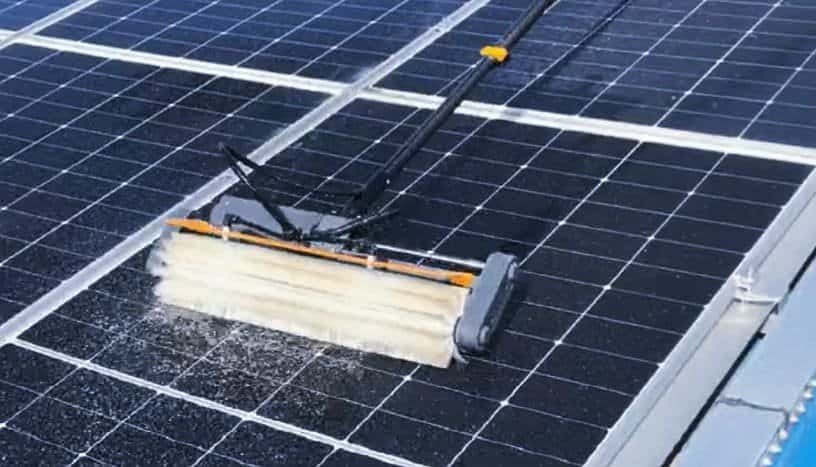
Automatic cleaning brushes deliver notable operational gains and cost savings; therefore they are a prudent choice for any solar energy system.
More Energy Production
More power is produced when solar panels remain clean. Energy output may fall by up to 30% once dust accumulates. Automated equipment cleans debris on a regular schedule therefore the modules stay at peak efficiency. Both energy yield and return on investment increase because cleaning is consistent.
As a case in point, a 3 MW solar farm equipped with a Brushcustom’s dry‐brush kit reported an immediate 11 % rise in energy generation after installation.
Reduced Maintenance Costs
Traditional hand cleaning need considerable labor, time and supplies. In contrast, automation removes almost all of these repeating costs. Deploying robotic systems can reduce manual labor requirements by nearly 60 %. The result is good long term savings and a faster payback period.
In addition, gentle non abrasive bristles—like the precision engineered options from Brushcustom—limit premature wear and also scratches. Protecting the panel surface in this way lengthens service life and cuts future repair or replacement expenses.
Safety and Risk Mitigation
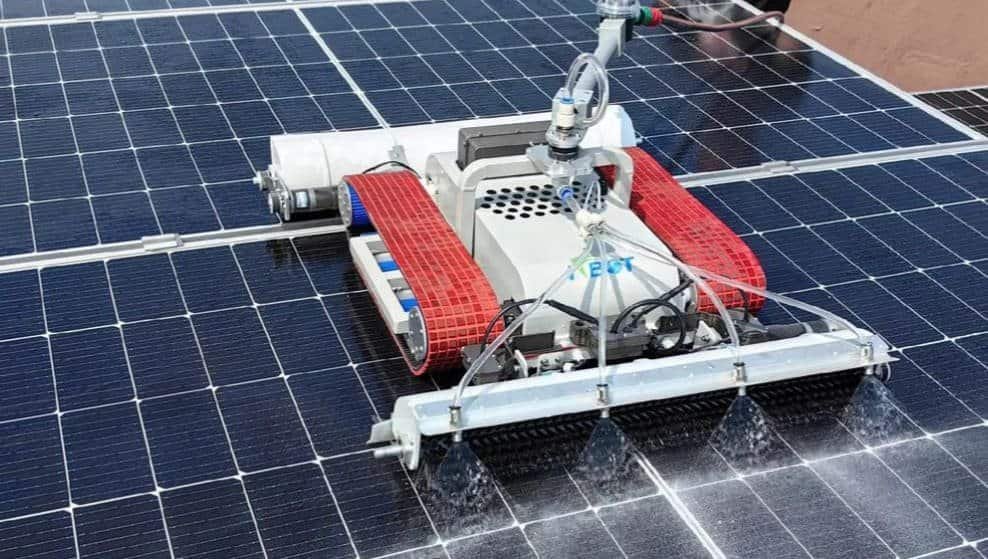
Working at height during manual cleaning exposes staff to serious danger. Automatic devices operate on rooftop without human intervention therefore the threat of falls disappears. Lower risk also means reduced liability for property owners.
Environmental Benefits
Most automatic systems place sustainability at the forefront. Waterless models save extensive volumes of water which is a vital advantage in arid locations. Operating without harsh chemicals, these systems avoid harmful runoff and help safeguard the environment.
Keep Panel Warranty Intact
Incorrect cleaning can harm solar modules and invalidate the manufacturer’s warranty. Automatic brushes rely on soft, manufacturer approved bristles therefore they cleanse gently yet effectively. This method preserves the panel surface and keeps the warranty valid.
Selecting the Right Automatic Cleaning System for You
Selecting appropriate automatic cleaning system has a direct impact on the benefits you realize. To land on the best option for your situation, weigh several key factors.
Match Panel Type and Size
Your cleaning system needs to work seamlessly with the panels already installed. Monocrystalline modules or fragile thin film solar panel, each call for particular brush materials that prevent damage. To get full coverage, align the cleaning system’s design and dimensions with your solar array’s layout and size.
Don’t Forget Climate
The prevailing climate at your site heavily influences the final selection. Where conditions are dry and dusty, waterless units clean proficiently while conserving scarce water. In areas with sticky pollen, heavy pollution or regular droppings, water sprinkler equipped systems are usually required to dislodge stubborn grime.
Unsure which option suits your site? Brushcustom engineers are ready to recommend or customize the ideal solution for your environment.
Budget and ROI
Begin by assessing total costs alongside the expected return on investment (ROI). Keep both the upfront spend and the ongoing financial gains in view. Fully automated systems cost more initially; but they cut labor bills and deliver large long term savings. The additional energy they generate further speeds up payback.
To Sum Up
For any solar installation, investing in automatic cleaning brushes makes both practical and financial sense. They help panels perform better for years by raising energy efficiency while lowering expenses and safety risks. For a customized brush system sized precisely for your project, contact BRUSH CUSTOM today.
Related Questions
Is water always necessary for automatic brush cleaning?
No. Many automated units clean dry using air jets, soft rotating brushes & electrostatic removal techniques.
Will automatic cleaning systems work with every type of solar panel?
Almost always. Engineers design automatic cleaners to accommodate diverse panel sizes, types and mounting configurations.
Could automatic brushes scratch or damage the panels?
Damage is unlikely because professional cleaning systems rely on gentle bristles and regulated pressure rather than abrasive contact.
Can this technology expand to cover entire solar farms?
Yes. The modular architecture of these brushes lets operators scale automatic cleaning from small arrays to extensive commercial solar farms.
Is night‐time operation feasible for automatic cleaners?
Yes. Some systems are built specifically for nocturnal operation to avoids thermal shock. They also improve scheduling flexibility.

